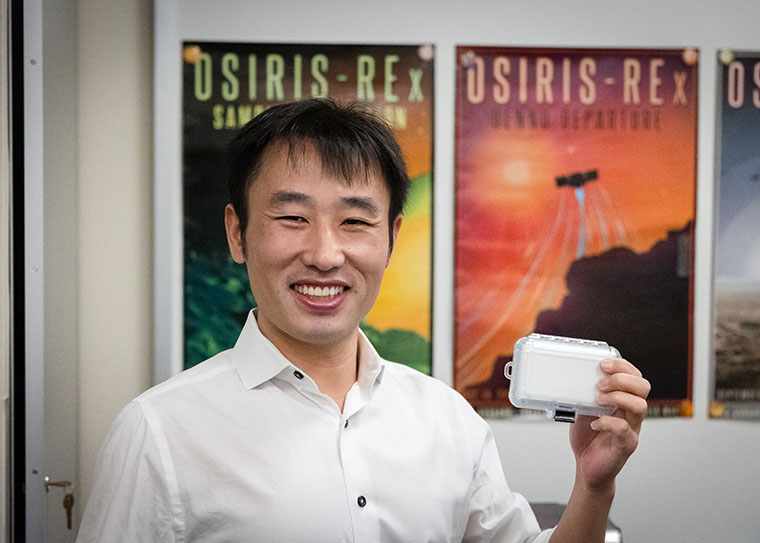A spacecraft from NASA's OSIRIS-REx (Origins, Spectral Interpretation, Resource Identification, and Security - Regolith Explorer) mission traveled to near-Earth asteroid Bennu and collected a sample of rocks and dust from the surface. OSIRIS-REx, the first U.S. mission to collect a sample from an asteroid, delivered the sample to Earth on Sept. 24, 2023.

In an early analysis of this sample, published June 26 in Meteoritics & Planetary Science, the OSIRIS-REx sample analysis team — including Washington University in St. Louis co-authors Kun Wang and Piers Koefoed — found that Bennu contains the original ingredients that formed our solar system. The asteroid's dust is rich in carbon and nitrogen, as well as organic compounds, all of which are essential components for life as we know it.
The sample also contains magnesium-sodium phosphate, which was a surprise to the research team, because it wasn't seen in the remote sensing data collected by the spacecraft at Bennu. Its presence hints that the asteroid could have splintered off from a long-gone, tiny primitive ocean world.
The WashU scientists analyzed the bulk elemental composition of the Bennu sample and found that its composition was most similar to CI carbonaceous chondrites, a type of stony meteorite representing the most primitive composition of the sun and the solar system.
Wang is an associate professor and Koefoed is a staff scientist, both in the Department of Earth, Environmental, and Planetary Sciences in Arts & Sciences. They are also fellows of the McDonnell Center for the Space Sciences.
NASA's Goddard Space Flight Center in Greenbelt, Md., provided overall mission management, systems engineering and safety and mission assurance for OSIRIS-REx. Dante Lauretta, of the University of Arizona, is the principal investigator.






